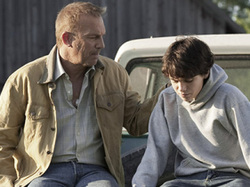| In the middle of the Sermon on the Mount, Jesus addresses our anxiety about basic needs. He says not to worry about food or clothing because God has a plan to provide for us just like he does for the birds and the flowers (see Matthew 6:25-32). Then Jesus tells us where to put our focus: “But seek first the kingdom of God and His righteousness, and all these things will be added to you” (Matthew 6:33). | |
|
How should we understand this combined command and promise from Jesus? We know from the preceding context that “all these things” doesn’t refer to everything you might want. It only refers to your basic needs: things to eat, to drink, and to wear. But even with that caveat, we know many people have both loved Jesus and struggled in dire poverty. Having faith in Jesus has not eliminated their children’s malnourishment or covered their bodies during cold nights. So is Jesus giving us some optimistic half-truth or have we misunderstood the message?
5 Comments
 Jesus had more to say about money than both heaven and hell, but he didn’t have much good to say about it. Specifically, Jesus was quick to judge people with money. He put it simply in Luke 6:24, “But woe to you who are rich, for you are receiving your comfort in full.” The “woe” statement is a prophetic announcement that judgment is coming. He assumed the wealthy in first-Century Israel had done something wrong to deserve judgment. We often miss Jesus' tough message about money because we hear only the parts we want to believe.  Involved dads emulating high character are the secret ingredient to transforming a gifted boy into a man of character. New "Man of Steel" Superman movie--released this weekend--sends this message home. Director Zach Snyder does pack the film full of larger-than-life action expected of blockbuster comic films, but Christopher Nolan writes in a depth of character development that might catch you off-guard. Superman doesn't just fly into a scene ready to defend the powerless and fight for justice. His dads have to prepare him first. In the final showdown, General Zod mocks the Man of Steel for being trained on a farm instead of raised as a warrior. Because on Krypton, they had replaced natural births to a mom and dad with genetically programmed births where each specimen was raised for a specific function. But superman's depth of character and courage goes far beyond Zod's pre-programmed fighting techniques. Why? Because he had loving parents, with particularly mature and thoughtful dads both on Krypton and Earth. Jor-El, Superman's biological dad from Krypton, tells Zod: "My son is twice the man you are." Jonathan Kent, Superman's adopted father on earth says: "You are my son. But somewhere out there you have another father, and he sent you here for a reason. And even if it takes you the rest of your life, you owe it to yourself to find out what that reason is." Although it's a comic book (and I don't regularly base my worldview on superhero drawings), I couldn't resonate more deeply with this theme in the film. I parent 5 children and can't say enough about the crucial role my intentional engagement with each kid plays (can't wait to go on individual dates with all of them this weekend!). They meticulously observe and emulate my character--be it good or bad. The hallowed view of a dad's importance in the Man of Steel makes it appropriate for the movie to release on Father's Day weekend. The power of a mature and engaged father to build men of character out of confused boys is a message we need Father's Day weekend and every day. It is the fuel that all of us fathers need to keep pouring into the formation of our kids at every opportunity. SEARS surprisingly captured the profound roles dads play in a recent commercial about dads in comparison to the Man of Steel... "I wish someone would have taught me that when I was younger." These words spoken by a friend of mine yesterday remind me of the root of all our problems. Although these words came out of a conversation about freedom being both a privilege and a responsibility, they led us to a conversation about moms and dads. It is my deep and well-researched conviction that the root of all our problems is the break down of the family.
The social problems I have been researching at work and the people I have been personally counseling in the past week have a common denominator. The criminal activity, abandoned children, educational underperformance, lack of life skills, addictions, poor mental health, etc. all have links back to dysfunctional families. When I spent 6 months investigating potential solutions to outstanding problems among the poor in Fort Worth, it was the same. I concluded that "Fatherlessness" is the most critical need to fill. Parents have the power to build character, confidence, wisdom, life skills, contentment, and all the other essential elements for healthy human beings. Or the absence of engaged parents (with wisdom and values to transfer) can strip a person of the necessary foundations for life. The biblical pattern for developing right character and love and justice and wisdom is simple but missing from most people's lives: "teach your children by talking to them when you sit in your house, walk around, lie down and get up" (Deuteronomy 6:7). If you are a parent, you can change the world one day at a time. Don't let your child tell some future friend, mentor or judge, "I wish someone would have taught me that when I was younger." Dysfunctional families might be the root of all our problems, but positively that means healthy, intentional families can be the solution to all our problems. It's a bold statement, but truer than you first realize. |
BUY the BOOKAuthorPaul Penley's training as a Bible scholar, life as a human being, and work as a philanthropic advisor overflows into this blog Top 5 BlogsCategories
All
Archives
January 2021
|






 RSS Feed
RSS Feed
